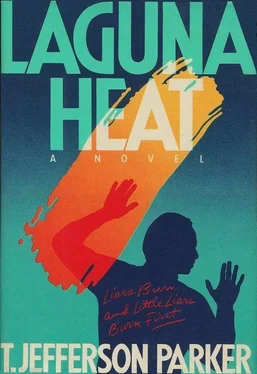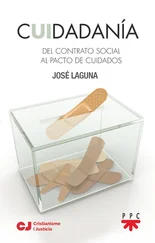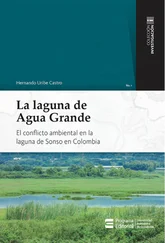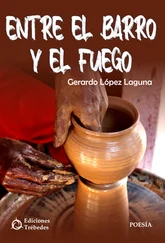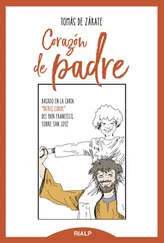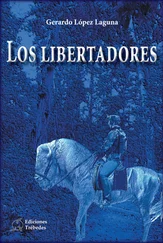Shephard stubbed out his cigarette in an ashtray beside the bench and inquired casually if Datilla had any doubt that Burton Creeley had drowned.
“Not after I saw him in the morgue,” he answered.
“By accident, I mean,” Shephard corrected. “There was speculation in the papers, Joe, that it was more than an accident.”
Joe Datilla’s face darkened, but his blue eyes stayed cool, controlled. “Third-rate theories from fourth-rate newspapers, Tom. You’ve got to know how that works, after all the press you got last summer.” His voice had heated. “Those bastards will print anything that takes up space. I resent what they implied when Burton died, and I’ll never forgive our wonderful free press for that. It taught me a lot, though. Like keep your mouth shut. The week after Nixon resigned there were rumors in the papers that he was staying here on my boat, Priceless. Not true. But I wouldn’t let the press in here to see for themselves, and they took me for part of a cover-up. Personal grudge, sorry.”
Shephard nodded. Then: “Burton was cheating on his wife.”
Datilla met Shephard’s gaze with a deadpan expression, his eyes steady and calm. “Burt Creeley was a man of endless energy and enthusiasm,” he said. “And some of those energies found regrettable outlets. Tom, I always thought he was foolish to risk what he had with Hope, but another man’s business is just that. The woman he was seeing was sick. A slut. Nymph.”
Datilla explained how Miss Helene Lang’s application for membership had slipped by him. He usually screened the applicants, especially those applying to live at the Surfside, personally. Somehow, the beautiful and rapacious Helene had slipped in under the door. It was only after a time that she began to show her “true colors.” Datilla said that after seeing what they were, he’d tried his best to stay away from Helene Lang.
“A man who can’t control himself is a fool and a danger to himself,” Datilla said. “I’ve seen a few get swallowed up by their own accidents. No one’s perfect, Tom, but I could never see Burton and her... besides the fact she was built nice and knew how to show it off. Hope was lovely, too. There’s a line you have to draw when what you risk is worth more than what you’re getting. A sense of proportion. You don’t bet a hundred to win fifty. Burton didn’t make little mistakes like most of us. Too sharp. He must have saved them all up for a big one. Helene Lang was it.”
“And did it cost him?”
“It must have. It cost his wife more, which was sad. And she handled it like the class act she was. Tremendous woman.” Joe sighed again and twisted the racquet in his hands.
“She thought highly of you, too. Called you several times before she died, didn’t she?”
Datilla glanced up, his face in a look of stiff amusement. “Oh? Well, of course, but how...”
Shephard explained the diary, while Datilla’s face softened.
“Yes, naturally. Must be very interesting to read.”
“Where did Helene go, when it was all over?”
“She was hospitalized for a nervous breakdown. Then she went back home. New England, I think it was.” Datilla gazed pensively at the strings of his racquet, as if Helene Lang might materialize from the empty squares.
The silence became awkward, and Shephard let it stand. But again he felt his line of questioning double back on itself, forming a circle, a zero. Datilla was as cooperative as he could want. Why wouldn’t something give? He watched a woman walk onto the balcony of a third-story penthouse, shake a beach towel, then disappear back through a sliding glass door.
“It’s out of proportion, Joe,” Shephard said listlessly, more to himself than to Datilla. “Like you say.”
“What’s that, the club?” Datilla followed Shephard’s gaze to the penthouse.
“No, the killing. There’s no sense of balance. It isn’t formed correctly. It’s like that bet in poker you talked about. Too much for too little. Unless we’re talking about stakes that aren’t on the table yet.”
“It looks that way, doesn’t it?”
“What do you get for the penthouse, Joe, ocean view?”
“Two thousand a month, plus membership and dues. That’s the basic. You can write your own ticket from there but it only goes one way.”
“A sweet few acres here, Joe.”
“Seventy-five in all. Where else in Newport Beach can you find a parking lot with room in it?”
“A smart buy, the club.”
“Tommy, I’ll tell you something about this club. But while I do it, I want you to see something that I think you’re going to appreciate. Come with me, let’s take a little walk.”
Datilla led them past the other courts, which were alive with players, shouts, the hollow pop of racquets hitting balls. He waved and nodded, and Shephard noticed that many of the players watched them walk by, their expressions locked into those reverential near smiles reserved for the rich.
“You say the club was a smart buy,” Datilla began. “But what it really was was a lucky buy. I was just a shade over twenty when I came back from France and the war. I had two loves — tennis and cars — and my dream was to make enough money to give me both. A year later, I had a club and it was called the Surfside.” Datilla paused to smile at a lovely brunette in a tennis skirt. She smiled back at him, then at Shephard. Maybe it is who you know, he thought abstractedly.
“Real estate was cheap then, so cheap you’d laugh if I told you what my first ten acres here cost. I didn’t have a leg to stand on financially, but some friends arranged a loan through the bank. Collateral was my tennis racquet, I guess. Started with a clubhouse and a few courts, and when the membership began to pick up, I sunk what money I could into more land.”
Datilla pointed ahead as they walked. Shephard followed his hand to the sprawl of apartments that loomed in the near distance. “All that was just bayfront sand,” he said proudly. “And finally I bought it all up. By 1948 I had so many people joining this club I was turning them away, and still building as fast as I could to accommodate them. So I got my tennis, Tommy. Smart buy? Maybe. But I think that luck was a big part. Keeping this place going is harder than getting it built. When you accumulate things, you accumulate worry. I’ve lived by one philosophy since the club was built. I don’t take chances. I cover my bets and play conservative. It’s more important to protect what you have than to reach out for more, don’t you think?”
“Right on, Joe,” Shephard answered, wondering if there were enough common ground in their two ways of life to merit any understanding of Joe Datilla’s philosophies. He thought of his ransacked apartment, comparing it to Datilla’s Surfside.
The tennis area ended at a tall wing of apartments on the left and a large open patio to the right. Centered in the patio was an Olympic-sized swimming pool, in which a solitary swimmer — an older woman by the looks of her — churned methodically down the middle lane. They followed a walkway past the pool and its bright yellow deckside furniture, a tennis pro shop, an open-air lounge. The bar was already littered with afternoon drinkers, dressed in tennis clothes and chatting energetically. Shephard thought it looked like a commercial for something — beer, or the good life, maybe.
Then came the men’s and women’s spas, a low building surrounded by the unmistakable odor of sweat, steam, disinfectant. They turned hard right at the end of the men’s locker rooms and descended a short flight of stairs that ended in a pair of blue doors. Datilla fumbled for his keys with one hand, but the other found the door open. He held it for Shephard and stepped inside.
Читать дальше
